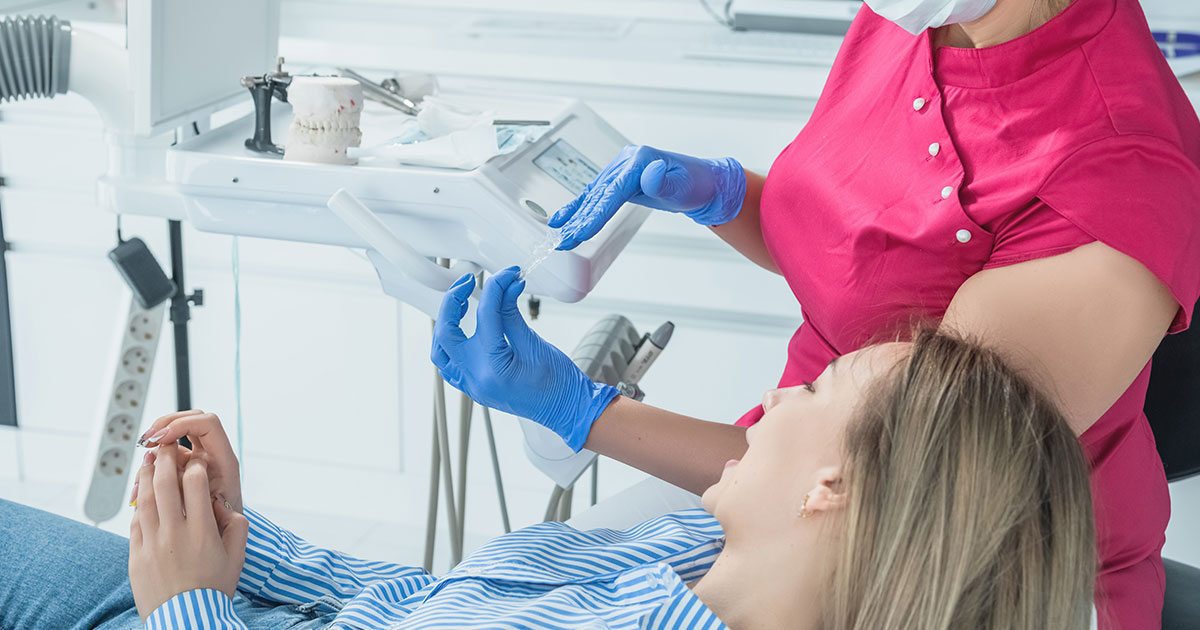What is a Bite Splint?
Posted On 10/23/2020 12:00:00 AM by Bruce Kanehl

If you suffer from TMJ (temporomandibular joint disorder), sleep apnea, or bruxism, you might benefit from what’s known as splint therapy. It’s often the best first-line approach to relieving these disorders and getting you the good night’s sleep you deserve.
What is a Bite Splint?
Bite splints work by improving your body’s airway. Some of the benefits to wearing the mouth device include:
- Tooth and dental restorations protection from wear or breakage.
- Reduced tendency to clench teeth, which can also damage dental implants.
- Relief from certain types of muscle or joint pain.
- Prevention of unwanted movement or shifting of teeth.
- Increased comfort from a joint adjustment.
For many people, a bite splint is a welcome alternative to CPAP machines and other treatment methods. And research shows that because patients prefer them, they’re more likely to consistently wear them to get relief.
When to Use a Bite Splint
Bite splints can be made to manage a number of different dental conditions. The top three are TMJ, sleep apnea, and bruxism.
- TMJ actually refers to multiple conditions of the jaw joint and chewing muscles. It can result in a range of symptoms for people who have it: pain when chewing, clicking and popping sounds, inability to widely open the mouth, or a change in bite that results in your teeth no longer properly lining up.
- Bruxism, or tooth grinding, is a common problem that results from excessive teeth grinding, usually while you sleep. While some people experience symptoms like jaw soreness, often the only evidence you have this condition is a worn-down appearance of your teeth or dental restorations. And many times, it’s only your dentist who can see it. A bite splint not only helps protect teeth from further wear, it can also prevent the development of TMJ.
- Sleep apnea, particularly mild to moderate cases, can benefit from bite splints by improving sleep and reducing snoring. An alternative to CPAP machines, they work by increasing the size of the upper airway by adjusting your jaw and keeping your tongue in place.
Is a Bite Splint Right for You?
Whether they’re a short or long-term, non-invasive treatments for TMJ, bruxism, and sleep apnea can be extremely successful. With regular check-ups and adjustments, a bite splint can deliver the relief you need for as long as you need it.
Dr. Bruce Kanehl of Kanehl Dental Group is well-known in the Jacksonville FL region for his expertise on splint therapy for TMJ and other conditions. A leading practitioner in bite splint therapy, for over 40 years he has been practicing TMJ treatment, diabetic dentistry, cosmetic dentistry, and the treatment of periodontal disease. He works tirelessly to ensure all his patients receive the dental care and treatment they need to improve their overall health and happiness.
To learn more about bite splints or to schedule a consultation about your sleep apnea, TMJ, or bruxism, get in touch with us today.
Bruce A. Kanehl, D.D.S.
7933 Baymeadows Way #5
Jacksonville, FL 32256
(904) 731-2162
To learn more about how we can make you smile, request a consultation today.
Dr. Kanehl is one of a select few in the Jacksonville area to be a member of the American Academy of Dental Sleep Medicine and to treat sleep apnea with oral appliance therapy.




